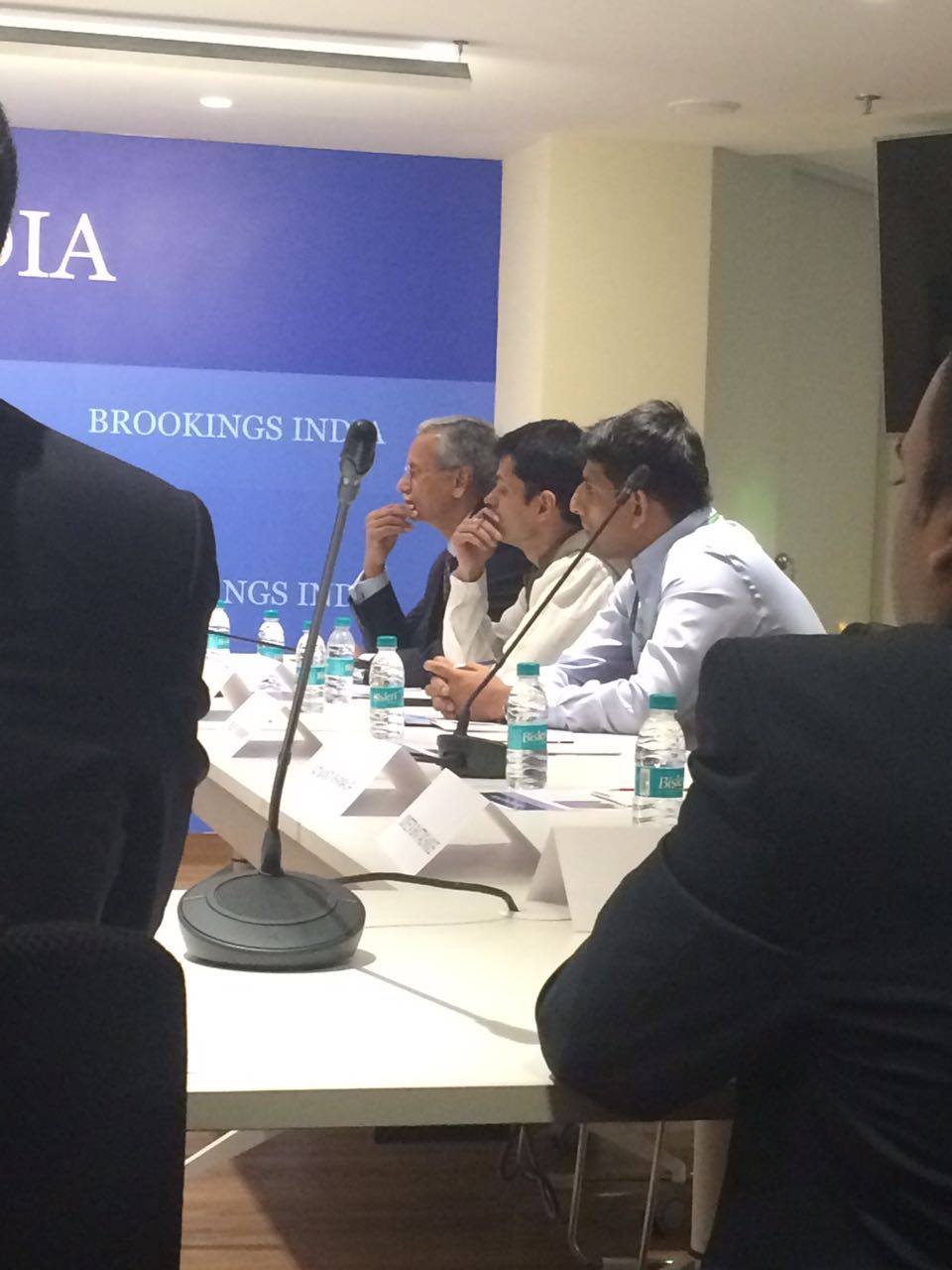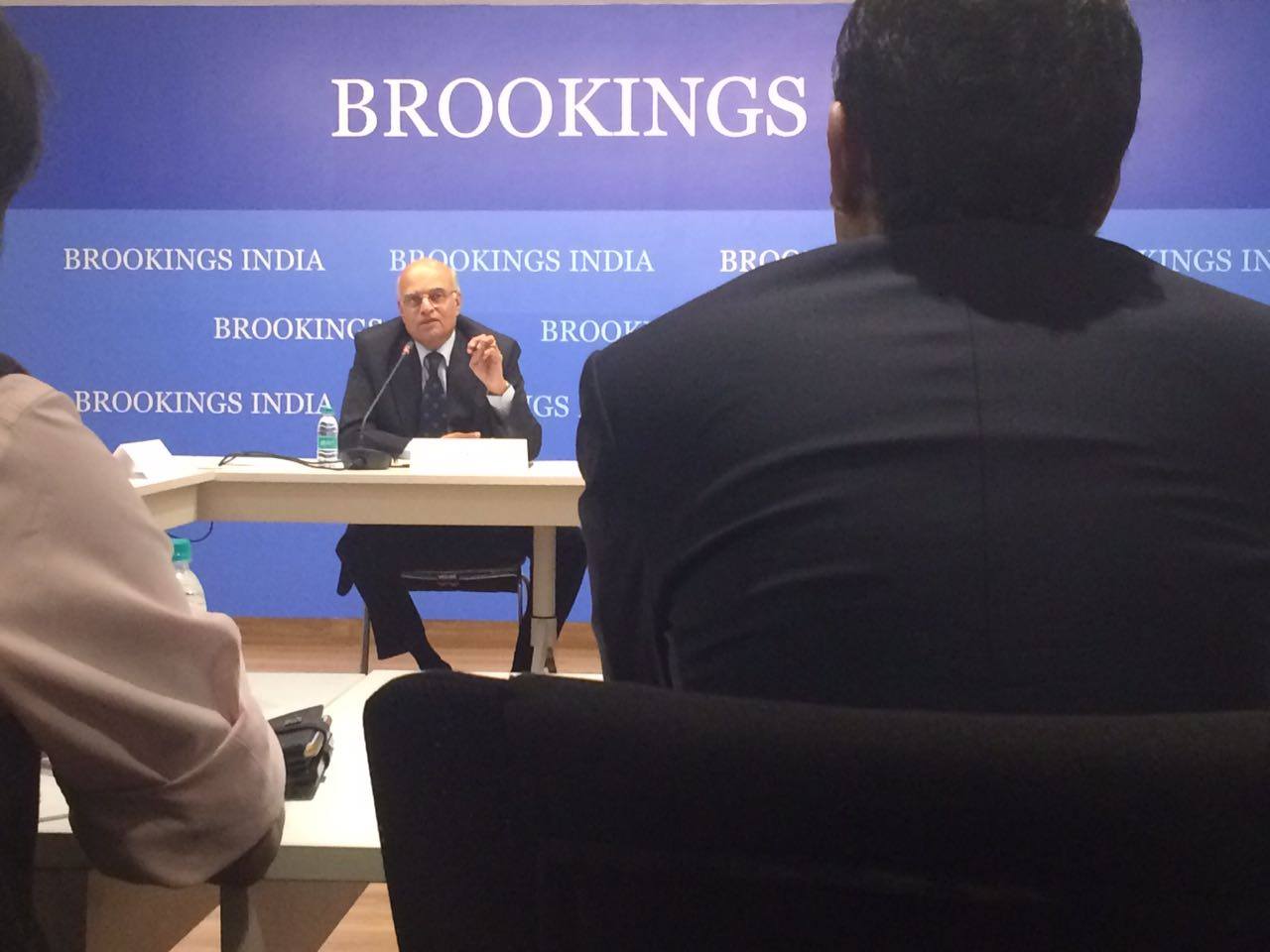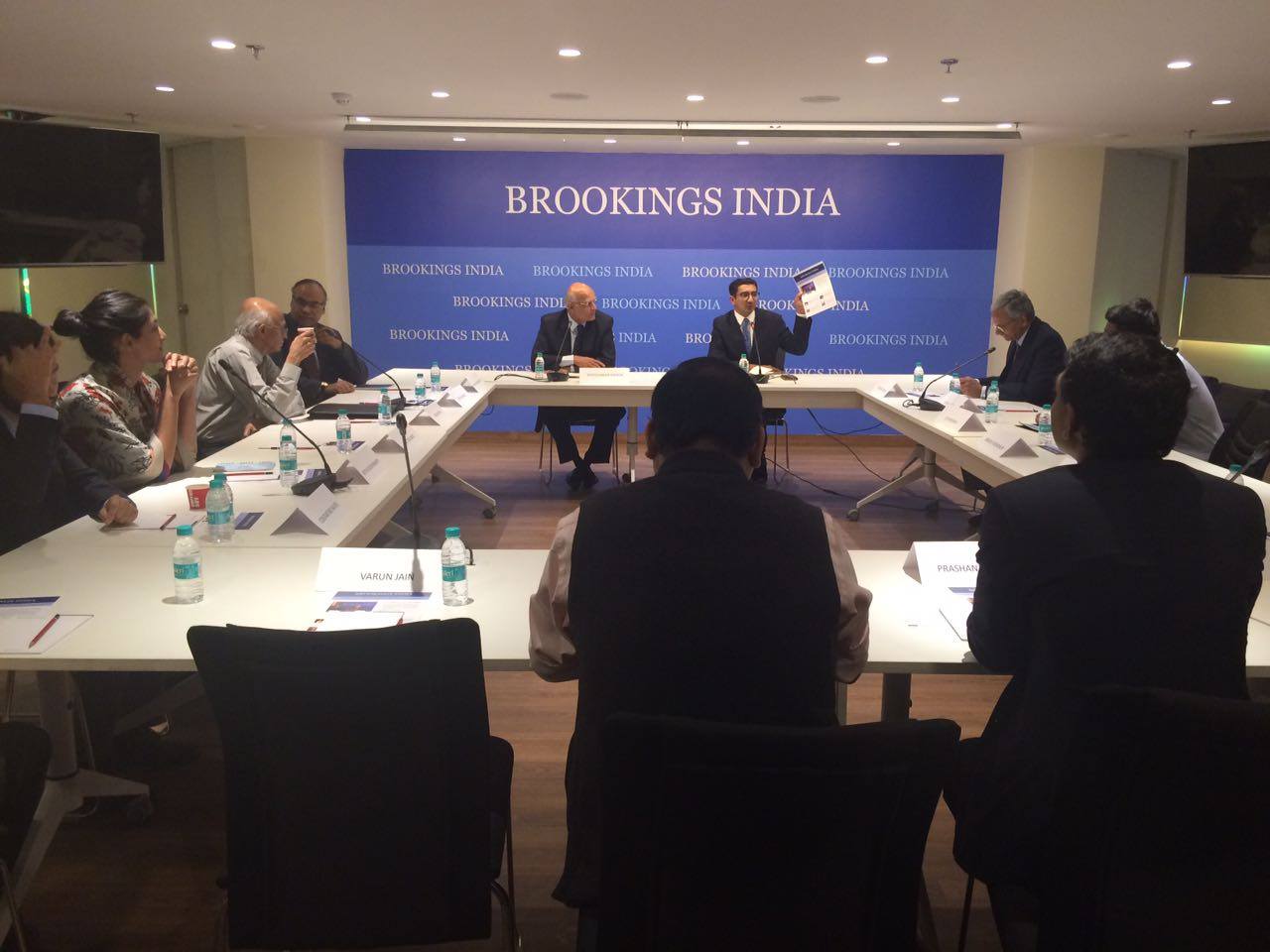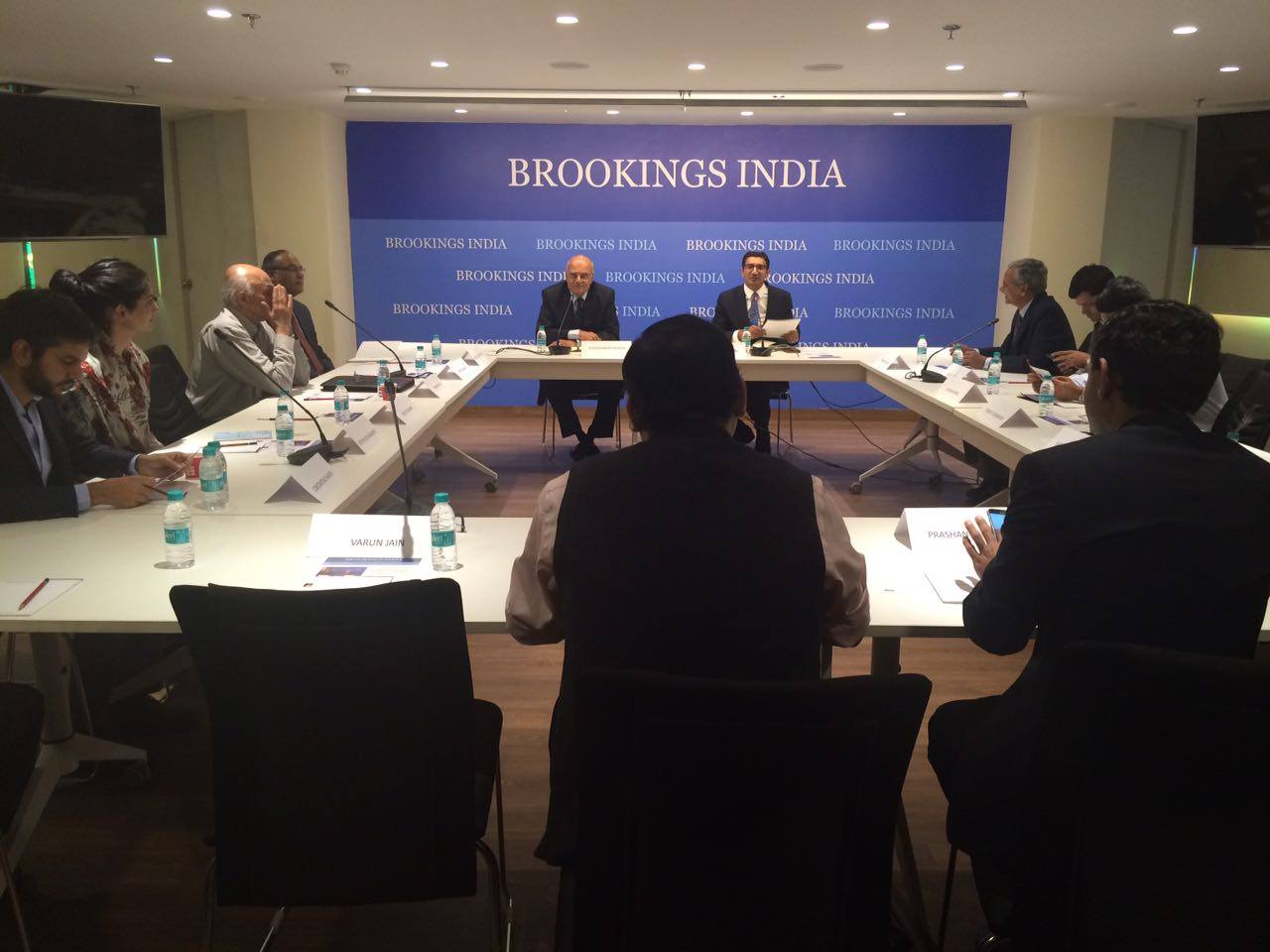

2:30 am IST - 4:00 am IST
Past Event
Content from the Brookings Institution India Center is now archived. After seven years of an impactful partnership, as of September 11, 2020, Brookings India is now the Centre for Social and Economic Progress, an independent public policy institution based in India.
Event Report




As part of our regular private roundtable discussion series on Foreign Policy, Brookings India hosted a discussion on ‘Wither SAARC?’ which was chaired and moderated by Ambassador Shivshankar Menon, Distinguished Fellow in Foreign Policy at Brookings and India’s former National Security Advisor and Foreign Secretary. SAARC today faces multiple challenges: It is arguably spread too thin, it faces problems of delivery, it is prone to obstructionism by individual member states, and it lacks a brand identity. Engagement between elites in South Asia is not enough, nor are there enough contacts between public policy institutes and think tanks of the SAARC member countries. Pakistan, in particular, has obstructed important initiatives, including stalling on issues of integration and connectivity, often not showing up for necessary meetings. But Pakistan is not alone, with Sri Lanka holding back the third round of SAFTA negotiations. As such, there has been a lot of criticism of SAARC as a useless or moribund organisation. Alternatives, such as BIMSTEC and IORA have gained in salience, particularly following Myanmar’s opening and the recent BRICS-BIMSTEC summit.
On the positive side, much is being accomplished both through SAARC and by other means to advance regionalism on the ground. Transport arrangements with Bangladesh, tabled in the 1970s, are today a reality. Intra-SAARC trade has grown significantly and official figures understate the reality of integration. SAARC also plays a useful role in collaboration on such issues as providing weather information and the South Asian University in New Delhi is a little-appreciated success story. The SAARC Satellite is an example of countries advancing an initiative despite opposition from one member state. At the very least, SAARC is necessary to ensure that the South Asian countries remain a diplomatic priority for one another.
A new reality in the region is China’s role, which now involves economic, military, and political involvement in several South Asian states. The capacity of smaller countries to stand up to China has decreased, as a result of their political fragility. India must be clear in communicating its red lines as to what kind of behaviour or activities compromise its interest. It must also be more selective in promising projects that are feasible and achieve desired results, focus on connectivity, retain its role as a first responder during crises, ensure that South Asia remains a diplomatic priority, and coordinate with third actors in the region – such as Japan, Singapore, and the United States.
A lot can possibly still be done to strengthen SAARC. This includes consolidating its activities to a few key issues, exploring sub-regional options such as BBIN, focusing on concrete deliverables with individual countries taking the lead, and investing further in the SAARC Secretariat. In India, states need to be roped in as stakeholders, more work needs to be done to involve parties in opposition, and India could refrain from micromanaging the internal affairs of its smaller neighbours. For SAARC, lowering criteria for projects can help address obstructionism, and focusing only on issues that cannot be addressed bilaterally can streamline SAARC’s agenda.
Like other products of the Brookings Institution India Center, this report is intended to contribute to discussion and stimulate debate on important issues. The views are of the author(s), discussant(s), panellist(s). Brookings India does not have any institutional views.
Event Announcement
The 19th summit of the South Asian Association for Regional Cooperation (SAARC) was supposed to have been held in Pakistan this month. But, citing an increase in cross-border attacks emanating from Pakistan, Prime Minister Narendra Modi decided not to attend this year’s summit. Subsequently, Bangladesh, Afghanistan, Sri Lanka, and Bhutan also decided not to participate. What does this year’s cancelled SAARC summit mean for the organisation and for Indian leadership in the region? Will India instead invest in other vehicles for regional cooperation, such as BIMSTEC, of which Pakistan is not a member? Or will it continue with a “SAARC-minus-one” policy of pursuing regional cooperation without letting it being held hostage by any one country? What does the cancellation of this year’s SAARC summit mean for the future of India-Pakistan bilateral engagement?
To discuss these and other questions related to the future of SAARC, Brookings India is holding a private roundtable, chaired by Ambassador Shivshankar Menon, Distinguished Fellow in Foreign Policy at Brookings and India’s former National Security Advisor and Foreign Secretary.

Rahul Tongia, Anurag Sehgal, Puneet Kamboj
2020
Online Only
Tuesday, 4:00 am - 5:40 am IST

Saneet Chakradeo
August 18, 2020